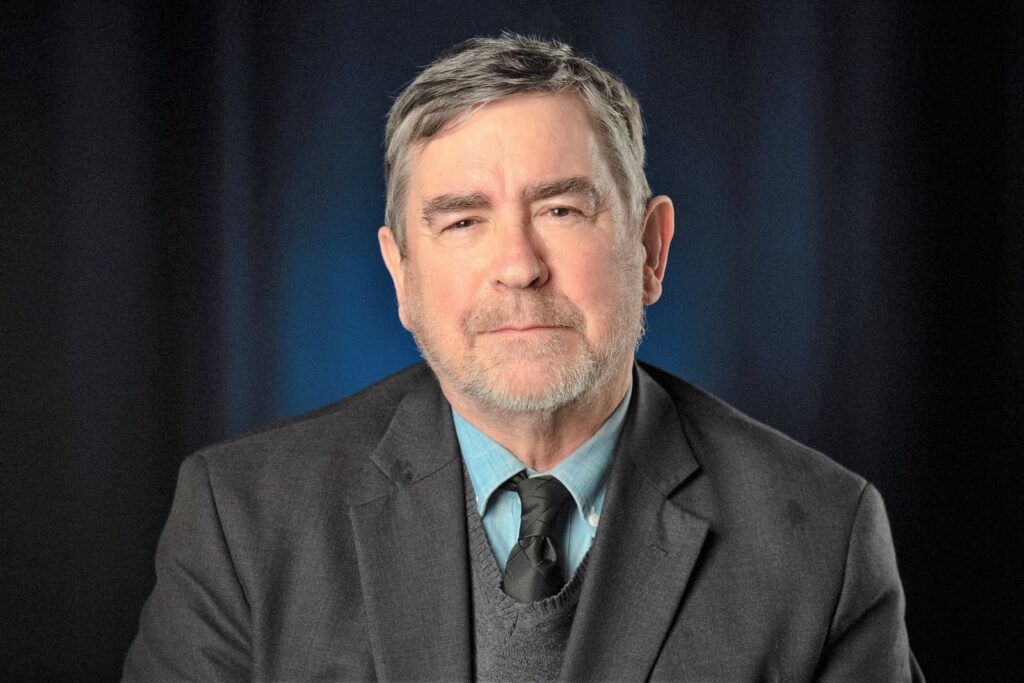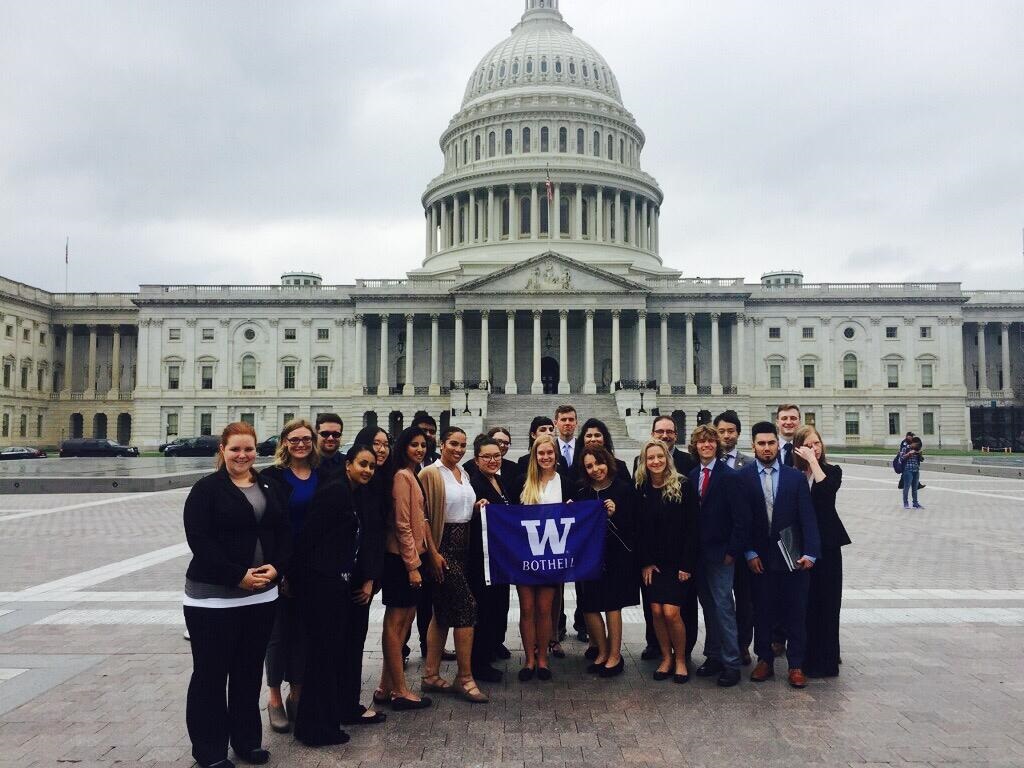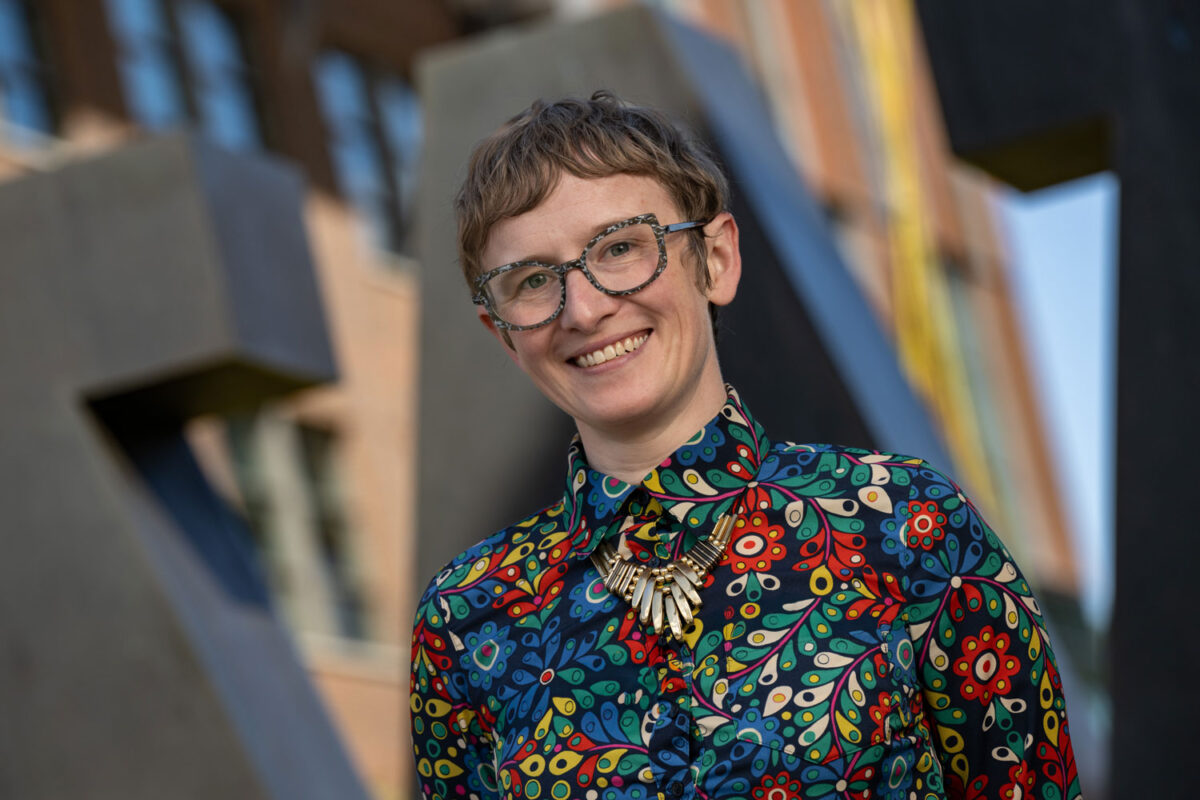
By Douglas Esser
In 25 years at the University of Washington Bothell, Bruce Kochis helped launch the University of Washington Center for Human Rights and the three-campus Human Rights minor, plus he guided the Washington, D.C., Human Rights Seminar for more than a decade. Yet, he said, the “real joy” in his career comes from recognizing abilities in students they haven’t recognized themselves.
“I’ve written on the bottom of someone’s paper, ‘I hope you’re going to law school. This is an absolutely great argument.’ And, they come to me stunned and say, ‘No one’s ever said that.’
“It’s a little thing, sometimes, but to them, it’s not little,” Kochis said. “People don’t come here to get an education. They come here to change their lives.”
His talent for thinking deeply and stimulating students infused the human rights and public policy courses taught by Kochis, a senior lecturer in the School of Interdisciplinary Arts & Sciences (IAS). Classroom days are numbered now, as Kochis plans to retire in August 2019.
Alumni and other members of the campus community still have a chance to hear Kochis when he delivers the Encore! lecture, “The Way Forward: A Human Rights Response to Social Trauma,” at 6:30 p.m. on Jan. 17 in Discovery Hall 061. A reception will follow. The lecture is free, but guests are asked to register. Encore! is an annual lecture recognizing UW Bothell’s distinguished faculty as they retire. Former faculty Cherry Banks, Alan Wood and Warren Buck delivered previous Encore! talks.
Filling multiple roles
Kochis came to UW Bothell in 1993, just three years after the campus was founded. Classes were still being held in a business park. A 1971 UW graduate who received a doctorate in Slavic languages and literature from the University of Michigan, Kochis was invited to teach courses on Eastern Europe and Russia for a professor who was on sabbatical. Kochis kept filling in where needed and considered himself a “utility infielder” for the Liberal Studies program, which became IAS.
Recognizing human rights as its own field of study, Kochis applied for and received a $280,000 grant in 1998 to start the Human Rights Education and Research Network. He insisted on including faculty from the UW in Seattle and Tacoma who shared his interdisciplinary approach. “They were all interested in getting out of their narrow niches,” Kochis said.
In 2001, the faculty started the Human Rights minor, which is believed to be the first tri-campus minor at the UW. About 50 UW Bothell students now minor in Human Rights each year. Kochis is pleased to see they come from the other schools on campus — not just IAS.
The network led to the creation in 2010 of the University of Washington Center for Human Rights, based at UW in Seattle. Kochis is on the center’s steering committee. It sponsors conferences, research and scholarships. Activist as well as academic, it has sued the Central Intelligence Agency for records about El Salvador and reported on violations of immigrant human rights along Washington’s northern border.
Intense human rights seminar
Professor Robert Schultz, a founding faculty member at UW Bothell, started the Washington, D.C., Human Rights Seminar in 1991. When Schultz retired in 2000, Kochis was asked, once again, to fill in. Kochis ran the seminar for 12 years. Then IAS faculty members Camille Walsh and Ron Krabill were brought in, and they continue to lead the seminar.

Kochis calls the seminar one of the most innovative courses in the United States. It’s built around an intensive weeklong trip to Washington, D.C., during which students meet with members of Congress and officials at the State Department, Pentagon, other government agencies and nongovernmental organizations. Students run from briefing to briefing from 8 in the morning to 10 at night.
“You get to see how human rights foreign policy is made,” Kochis said. “We’ve had some amazing opportunities to go into the belly of the beast.”
The D.C. seminar is the longest running program on campus. Kochis had to cancel one year — 2001 — when he was helping create the Master of Arts in Policy Studies (MAPS). As it turned out, the seminar would not have been able to take the usual September trip because of the disruption of 9/11.
MAPS for the world
The MAPS program was created as a complement to the human rights curriculum, Kochis said. “I decided what we needed to do was teach students how to change the world — not just analyze the world,” said Kochis.
His impact is felt throughout IAS, said Joren Clowers, who had classes and seminars with Kochis on the way to receiving an American and Ethnic Studies degree in 2017 and MAPS in 2018.
“Definitely one of my favorite professors,” said Clowers. “He connects dots you wouldn’t otherwise connect. You always get more out of his class than you are expecting. You can take a class on one topic, but what you’ll take out of it might not be related to the title of the class.”
Kochis said he uses a modified Socratic method of teaching.
“What I try to pass along to students is to question what’s going on,” Kochis said. “‘What is a right?’ for example. Where does that come from? It’s a political concept, and sometimes people say it exists in moral philosophy — a moral right. I get them to think about that. What is moral authority?”
A human-rights approach to social trauma
Kochis promises a provocative Encore! lecture.
“I’m convinced we’re in a period of real trauma socially,” he said. “Everything is unstable. Democracy is unstable. Work is unstable. More significantly, our moral order is unstable. So how do we go forward?”
The lecture may echo his response to students who have asked him how he could go forward in the face of atrocities in the world. “I say, I think there’s a moral order to things, and you have to keep believing in that moral order.”
After retiring, Kochis may start a think tank with friends who share some core ideas about what makes a decent society. Still a utility infielder, Kochis also said he’d be glad to teach a course or two if needed.
“It’s such an enormous privilege. I’ve visited South Africa, and I’ve visited schools in Guatemala, and when you see what people are going through trying to get educated, and then you look around at this,” he said, glancing out the window of his office in Founder’s Hall, “you say how could I possibly whine and complain about anything?”
“I would emphasize what a phenomenal opportunity, what a great career it’s been here,” he said. “And what an enormous responsibility we have to this generation and the next to educate them so they can make it better.”



